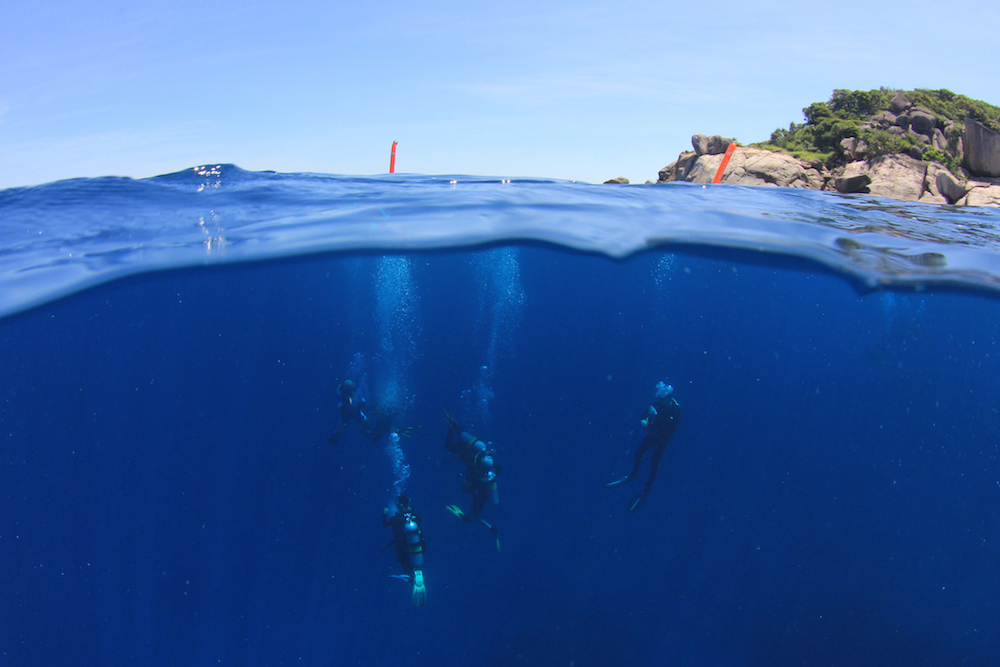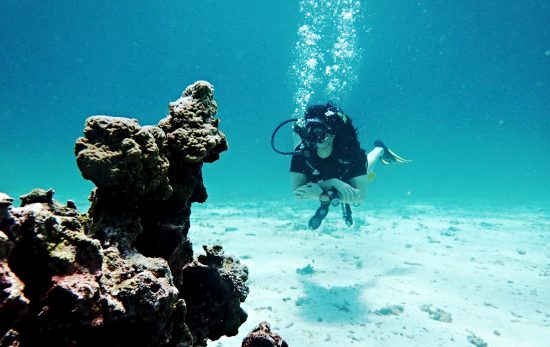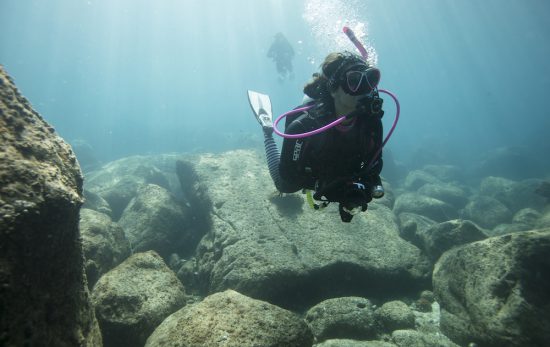The scenarios below are based upon real-life diving incidents documented by Divers Alert Network (DAN).
Leaking Glove Leads to Ear Barotrauma
You’ve likely heard about the dangers of distracted driving, but distracted diving is hazardous too. A dry suit diver with a leaky glove learned this lesson the hard way. He reported to DAN:
“During my descent I became aware that one of my dry gloves was leaking. While I attempted to rectify the problem, I was not aware that I continued to descend, and I sustained middle-ear barotrauma to my right ear.”
Notes from DAN:
Proper buoyancy control is an essential safety skill that requires practice and our full concentration. The scenario that the diver describes most likely occurred due to two factors that divers frequently underestimate. The first is buoyancy control. Had the diver established neutral buoyancy, he would not have continued to descend. The consequences of this diver’s situation were not serious, but in other circumstances it could have created a potentially dire situation. Whether the diver experiences an uncontrolled descent or ascent, the potential consequences of either could be catastrophic.
Additionally, the diver was distracted when attempting to address the leaking dry glove, but he could have been taking a photograph, adjusting equipment or watching marine life. The term “situational awareness” may sound trite, but this is an example of how a simple or even familiar distraction can produce a negative outcome.

Assistant Instructor Suffers Reverse Block
An assistant instructor working with an instructor and three students experienced severe pain during the ascent phase of an uneventful dive. Here is his description of what happened:
“At the end of the dive… I experienced a reverse block in my right ear. I descended again until it was relieved and then very slowly started ascending again. I was not able to clear it for about 10 minutes. Several times I had to descend and then try to ascend again. Even when I managed to clear it such that I could surface without severe pain, my right ear was still very sore.”
The assistant instructor went to see his primary care physician the next day, who referred him to an ENT. The ENT performed a pressure test and hearing test on both ears, and everything came back normal.
Notes from DAN:
A reverse block can happen even when everything else went well in a dive and this diver followed the correct procedure by re-descending to take the pressure off. By re-descending, then slowly trying to ascend in small steps, taking the time to let the trapped gas work its way out, this diver avoided a burst eardrum. This is another example where excellent buoyancy control can make the difference between avoiding an ear injury or suffering one. Remember, the correct hand signals for this are “Something is wrong” followed by pointing at the problem ear.





